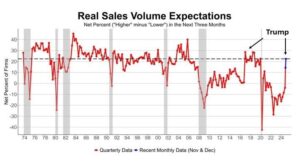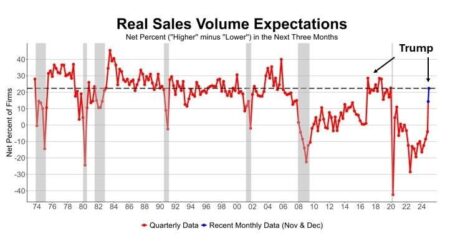Pernille Lind Olsen is the President of Henkel North America.
Business is done between people, and between people, trust is the ultimate currency—a fundamental psychological element that underpins successful interactions. Trust is the key to deeper conversations about the ever-changing trends, needs and values that drive our customers’ and consumers’ purchasing behaviors and desire to collaborate. Therefore, trust is essential to unlocking opportunities. In fact, according to findings from a 2024 PwC study, “93% of business executives agree that building and maintaining trust improves the bottom line.”
Earning trust in business is central to building sustainable relationships, and while it can take years to earn trust, it takes only seconds to lose it. Building trustful relationships requires courageous leadership, bold collaboration and ambitious, consistent action—it requires that we listen, follow up and follow through.
Trust Is An Essential Component Of Any Sustainability Initiative
Shifting business practices toward sustainability is a defining challenge of our time. It is a large and complex task, and I am a firm believer that we need to collaborate along the value chain to tackle it—and that’s why we need trust.
As corporate commitments to sustainability have increased, so has skepticism around these commitments. Organizations have the ability to bridge a gap in trust around the sustainable transformation of business, but it is delicate. It’s important for us as leaders to continue pushing the needle on consistency and follow through on both internal sustainability goals and on providing sustainable solutions to customers, ensuring that trust in businesses and their commitments to sustainability are maintained.
Three key levers—performance, transparency and collaboration—can help companies build trust and reinforce their commitment to sustainability.
When Sustainability And Performance Go Hand In Hand
Companies that act on their environmental commitments through sustainable and performance-oriented solutions bolster credibility among customers and demonstrate that transitioning to sustainable practices does not mean sacrificing performance, quality and safety.
Opportunities to create environmental impact are all around us. However, upholding a commitment to sustainability is not contingent on one project. Collaboration can be the key to scaling your initiatives. The result of your partnerships when scaled can act as a powerful step forward in reducing waste and championing sustainability. This is not only a bold step in innovation and collaboration, but also a proactive demonstration of your priorities in sustainability and inspiring trust and collaboration among partners, customers and consumers.
In 2022, the recycling rate for cardboard in the U.S. was over 93%. With this knowledge, my company partnered with a leader in consumer packaging goods to decrease the percentage of plastic packaging used for consumer brands and replace it with recycled and recyclable cardboard, supported by adhesives. We entered a global multi-year partnership and reduced the carbon footprint of end-of-line packaging for two flagship products by 25% through a sustainable alternative to fossil-based adhesives, without compromising performance.
Commit To Transparency To Achieve Success
Companies can leverage internal and external tracking frameworks to demonstrate the impact of their sustainability practices and promote the standardization of key sustainability metrics. Aligning with partners that are reputable and trustworthy among external audiences is one way to boost customer and consumer confidence.
Companies can create transparent internal processes to inspire trust or lean on sustainability ratings from third parties. Leaders can create internal assessments that are audited for credibility with a focus on climate, circularity, nature and safety to determine the environmental and social impacts of a product portfolio. Companies like EcoVadis and global initiatives like Together for Sustainability (which my company is a member of) help elevate transparent sustainability across supply chains, inform investments and hold brands accountable.
We have utilized an environmental impact scoring system for cosmetic products. Through this system, we have assessed the sustainability footprint of over 200,000 of our beauty product formulas. Providing this information proactively and transparently to our customers and consumers helps them make more informed purchasing decisions and helps us optimize formulas for environmental impact.
Drive Transformation Through Collaboration
In today’s fast-changing environment, collaboration helps us leverage the strengths of different internal and external stakeholders to more expertly and efficiently reach a common goal while instilling customer and consumer trust in our systems.
For example, when companies implement responsible sourcing policies, they can mitigate risk and build trust while making a positive impact. Responsible sourcing policies can support lasting, sustainable and ethical improvements to the supply chain while also prompting collaborative improvement processes along the value chain—often in partnership with other global entities.
In my company’s partnership with an international civil society organization, we help smallholder farmers in Central and South America earn a living wage while connecting them to a global supply chain. This collaboration’s aim is to enhance economic stability, sustainable practices and quality of life for community members while equipping younger generations with the tools to succeed. In our work with businesses owned by historically underrepresented communities like veterans, women and other racial and ethnic minorities, we engage them through both collaboration and mentorship.
It All Starts And Ends With Trust
Driving transformational change for sustainability is not a one-person or one-company task. It requires transparency and collaboration, and both start with trust: trust between employees, leaders, partners and communities. Dedication and follow-through on our commitments is the first step, and the second is opening up to discuss opportunities and challenges in partnerships to shape collaboration. It is key that we follow through consistently and with transparency.
I started out saying that business is done between people, and between people, trust is the ultimate currency. This is where we as leaders can play a critical role: building trust between our team members internally and between partners, suppliers, customers and consumers externally.
Forbes Business Council is the foremost growth and networking organization for business owners and leaders. Do I qualify?
Read the full article here











